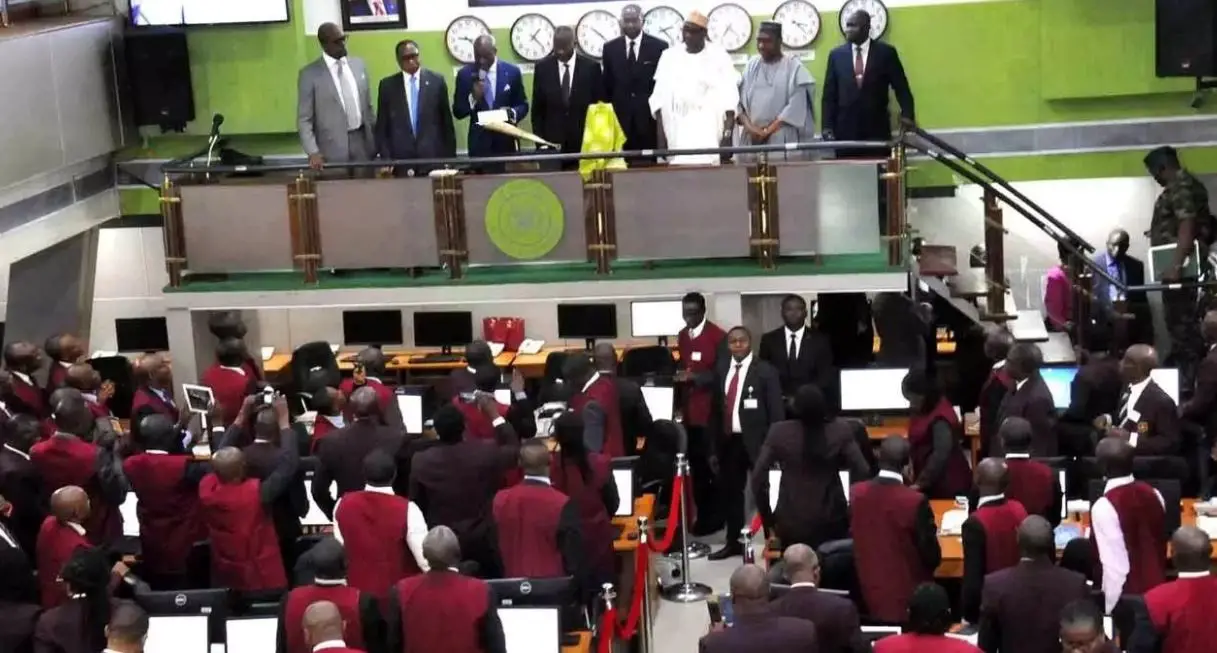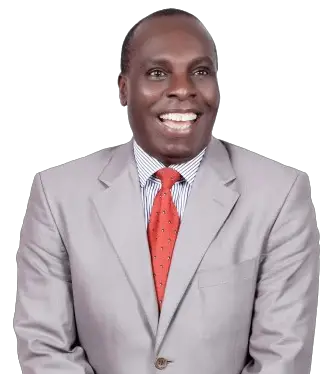We're glad you enjoy reading this business insight.
Do you want my team to help restructure your business for higher productivity?

Before talking about the Capital Market in Nigeria, let see what is a Capital Market? A capital market is an institution that facilitates the trading of long-term debt or equity-backed securities.
Capital markets serve savings with investment between the suppliers of capital and the users of capital.
The capital markets consist primarily of primary markets, where new issues are distributed to investors, and secondary markets, which trade existing securities.
The Capital Market in Nigeria is the segment of the financial system that facilitates the financing of long-term investments in Nigeria.
This might interest you too: "Learn How To Source Funds For Your Lucrative Business In Nigeria"
It includes all aspects of buying, selling and issuing shares and other long-term financial instruments including raising capital for corporations through initial public offerings (IPOs), secondary market offerings, and private equity transactions.
The Capital Market in Nigeria can be divided into two segments:
Primary Market: In this market, new securities are offered to investors. In particular, this market allows companies to raise capital by issuing either common or preferred stock. These are then sold via a mechanism known as an initial public offering.
Secondary Market: This refers to the financial market where previously issued securities and financial instruments such as stock, bonds, options, and futures are bought and sold. Investors can trade these instruments on either "organized exchanges" or over the counter (OTC).
Securities traded on an exchange include stocks, stock options and bonds. The OTC market includes stocks that are not listed on any exchange.
The Capital Market in Nigeria is comprised of a four-tiered structure:
Tier 1 - Securities and Exchange Commission
Tier 2 – The Nigerian Stock Exchange
Tier 3 – The Central Securities Clearing System
Tier 4 – The Depositories (Central Securities Clearing System and the Nigerian Stock Exchange).
The Securities and Exchange Commission (SEC) is responsible for regulation and oversight of the market, issuing licenses to operators and registering securities for trading. It also sanctions any violations of its rules or existing securities laws.
The Nigerian Stock Exchange (NSE) oversees the organized trading in capital markets products, including stocks, mutual funds, treasury bills, and bonds.
It also provides settlement services through a dematerialization system called the Central Securities Clearing System (CSCS).
The CSCS's main function is to clear and settle trades executed on the NSE. However, it also provides registrar services to corporate organizations that are listed on the NSE.
Finally, there are two depositories in Nigeria that hold securities certificates in paper form on behalf of investors: CSCS & NSE.
Nigeria has a vast capital market, including many different entities. The Nigerian Stock Exchange is the largest of these and lists most securities in Nigeria.
The NSE is the largest exchange in Africa and it lists most securities traded in Nigeria. It offers a range of tradable assets, including equities and bonds. The NSE was established in 1960 as the Lagos Stock Exchange when it was only located in Lagos.
In 1977, it became the Nigerian Stock Exchange, and recently it expanded to include branches from Abuja, Port Harcourt, and Kano. It currently trades about $7 billion USD worth of product each year, which is about 40% of the total market volume for West Africa.
Its domestic assets are listed under tiers that have different levels of regulation or de-regulation. The NSEs market capitalization is about $37 billion USD as of July 2019.
The Capital Market in Nigeria is a deregulated market which is made up of both primary and secondary markets.
Primary market: this is the part of the capital market where companies raise funds through the sale of new securities, while the secondary market, on the other hand, is a platform where investors purchase and sell existing securities.
Capital Market in Nigeria is regulated by the Nigerian Stock Exchange, which was established in 1960. The NSE has 4 listing segments: The Premium Board (for public companies), the Main Board (for public companies), the Alternative Securities Market (for small and medium businesses), and the FMDQ OTC PLC (for over-the-counter securities).
The NSE functions as an exchange for equities, bonds, funds, and derivatives. It also serves as a regulator of investment activities in Capital Market in Nigeria.
The Nigerian capital market is the organized market for long-term funding. It is composed of the Nigerian Stock Exchange (NSE) and the FMDQ OTC Securities Exchange (FMDQ). The NSE is a public limited liability company.
It was established in 1960 with the responsibility to provide an efficient and transparent platform for intermediation between capital providers and users.
The NSE has been operating as a fully electronic exchange since 1999, when it migrated from an open-outcry floor trading system to a single electronic platform called The Exchange. In 2011, the NSE became fully listed on its own exchange
The FMDQ OTC Securities Exchange is licensed by the Securities and Exchange Commission (SEC) and commenced trading operations on February 25, 2016.
The principal activities of FMDQ are to:
Nigeria is a country that has many types of capital markets and structures.
CBN is the central bank of Nigeria, and it is the regulatory agency for all of the capital markets in the country. The securities market has two main types: money or fixed income market and stock market.
The money market deals with short-term financial instruments such as treasury bills, notes, bonds, and commercial papers as well as bankers acceptances. These financial instruments are issued by governments at different levels and by companies.
The money market is over-the-counter (OTC) based which means it uses broker/dealers and investment banks to buy and sell securities between buyers and sellers.
The stock market on the other hand deals with long-term financial instruments such as stocks, bonds and preferred shares. The stock market does not operate OTC but rather operates on an exchange where shares are traded electronically on a computer system called "Automated Trading System."
The capital market in Nigeria is structured in the following way:
The Nigeria capital market is basically made up of two types which are the primary and secondary capital market though however, has two others sub types.
The distinction between these types of market is succinctly explained below.
The primary market is where new securities are issued and sold to the public for the first time, and it is also known as the new issues market.
In the primary market, companies, governments and other institutions raise funds by issuing new securities in an Initial Public Offering (IPO) or through a private placement. The proceeds from the sale of these securities are used to finance major projects.
In the secondary market, investors’ trade previously issued securities without raising any new capital. The Nigeria Stock Exchange provides a platform for trading of shares and other securities such as bonds and treasury bills.
Furthermore, the capital market in Nigeria is the market for long-term debt and equity. It is made up of four submarkets: the primary market, the secondary market, the derivative market, and the bond market.
The primary market is a public sale of new securities for the first time. It is where governments and corporations raise funds when they sell securities such as stocks or bonds to investors.
In contrast, the secondary market allows investors to trade previously issued securities. For example, buyers and sellers engage in stock trading at a stock exchange such as NASDAQ or NYSE.
The derivatives market deals with trading financial contracts whose value depends on an underlying asset, commodity, or security. This market also allows buyers and sellers to engage in trade agreements based on future outcomes using futures, options, swaps and other financial instruments called derivatives.
Finally, the bond market is a type of money market that exists for debt securities that have a fixed maturity date (typically more than one year.) In this case, buyers purchase bonds from issuers such as governments or companies who need financing for ongoing projects.
When these bonds reach maturity, the issuer returns funds (known as principal) and pays interest to the holder.
The Capital Market in Nigeria is divided into two main categories: the primary market and the secondary market. The primary market is where new stock offers are made to the public while the secondary market deals with the trading of existing security by investors.
These markets have a number of divisions which include:
This market is for investment instruments with a maturity period of one year or less. It involves interest bearing securities such as treasury bills, government bonds and commercial papers.
This is a debt-based capital market where the activity of buying and selling bonds takes place. It includes federal, state and corporate bonds.
This deals with buying and selling of shares in an organization. It is not only limited to public offering but also private placement, rights issues and so on.
It involves financial contracts whose value depends on another asset such as stocks, bonds or commodities such as gold, silver etc.
GABRIEL DOMALE CONSULTING | NIGERIA | +2347034604152 | Email Us Now | Visit Our Website

About us: Gabriel Domale Consulting, a leading management consulting firm, helps companies in Africa to grow, provides insights to leaders and transforms institutions. Our consultants utilize their decades of hands-on experience to provide advisory in finance, strategy, corporate governance, transformation and leadership training to help companies and public institutions to transform their operations. We encourage leaders seeking insights to visit our BLOG here and also Request For Proposal (RFP) for our consulting services here
Published origninally on 19th Apr 2022 21:03:37
;To discuss how our team can help your business achieve true results, please
Contact us

We're glad you enjoy reading this business insight.
Do you want my team to help restructure your business for higher productivity?